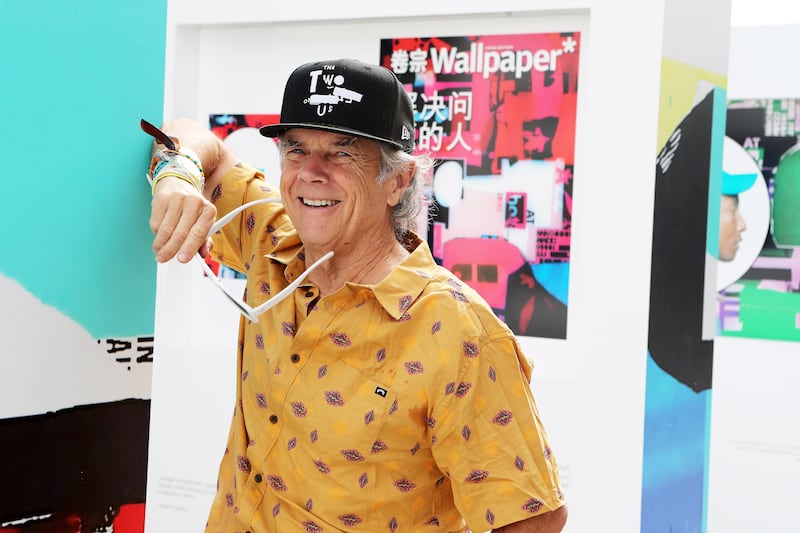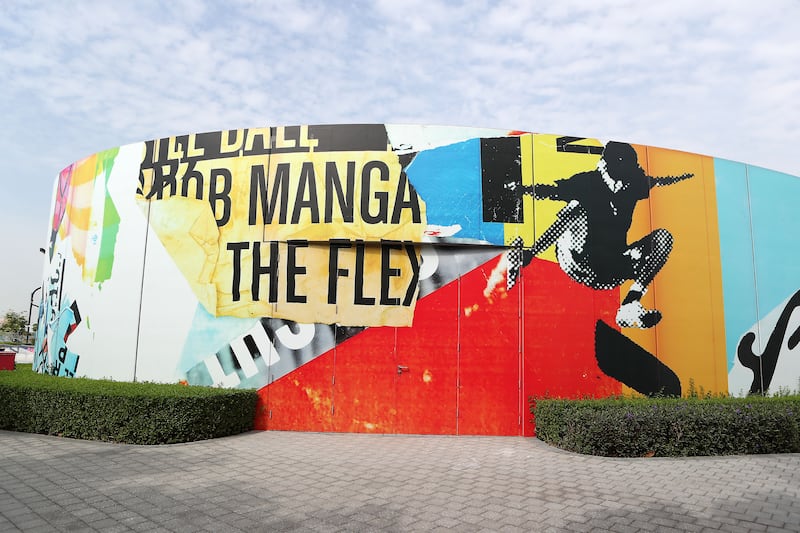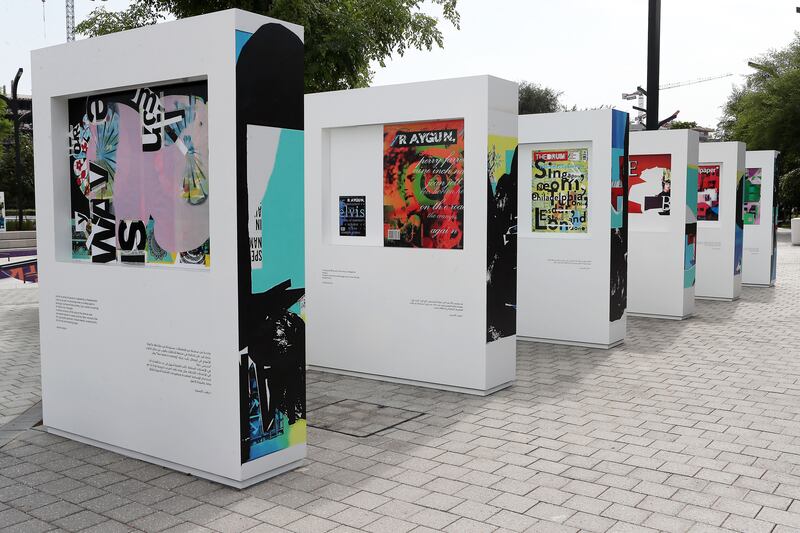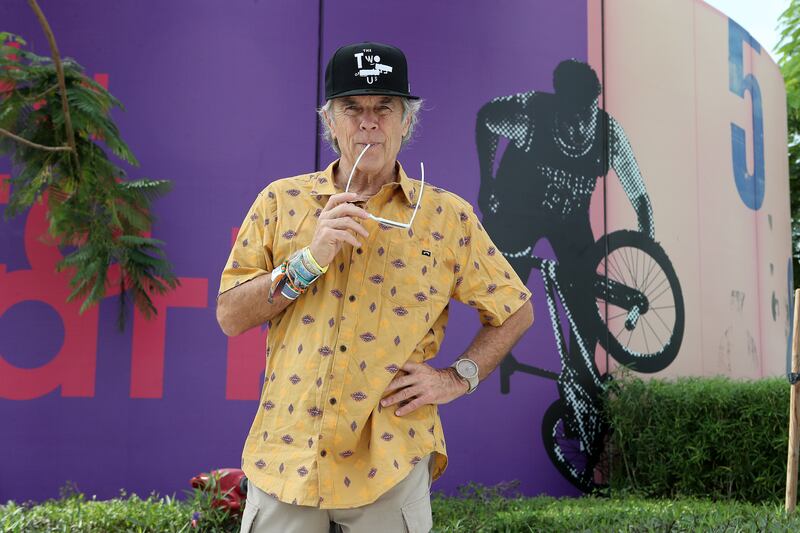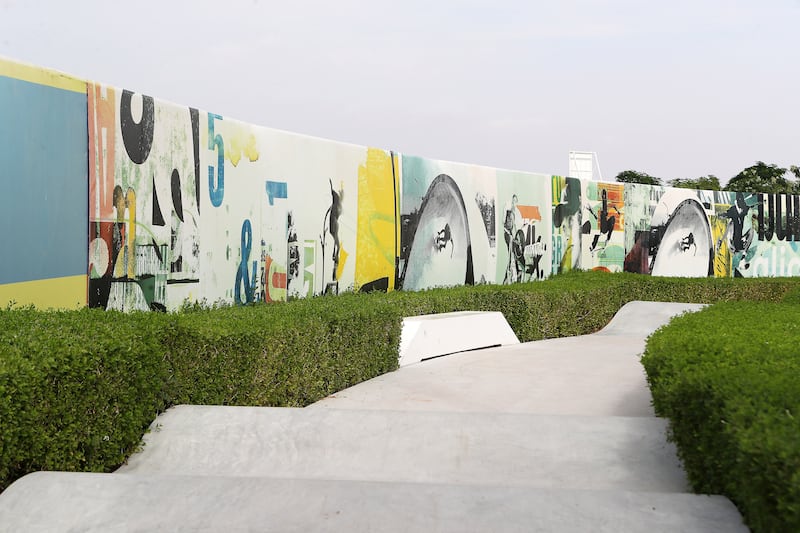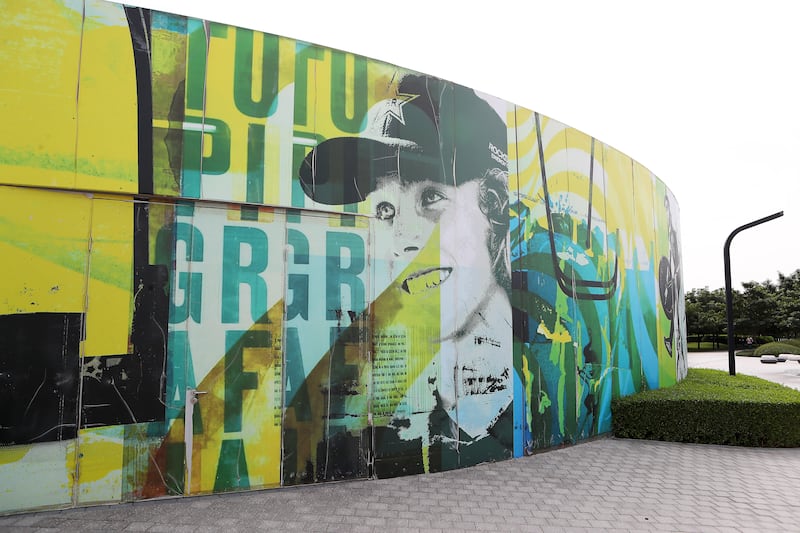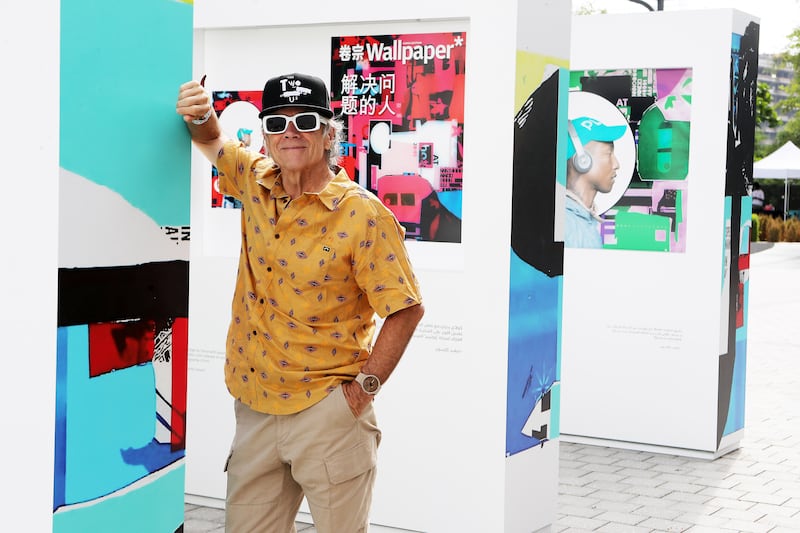“If everybody loves your work, you’re probably playing it too safe,” is a famous quote by graphic designer David Carson.
It's surreal to hear him say those words in person. Sitting across from the Aljada Skate Park in Sharjah, Carson admires his work, sprawled over long curving walls surrounding the skatepark, which opened to the public in December 2022.
Bold colours overlap and collide into each other. Black and white photos of skaters and bikers are enlarged and break out of the frame. Letters, words and numbers in mixed and altered fonts float and splatter across backgrounds made up of a multitude of patterns, graphic shapes and block colours.
“The context of my design here was primarily about the sport itself, skateboarding, that's number one,” Carson tells The National.
“Then I thought, 'let's look at this unique environment and how we can make it work'. And it feels oddly blended. Like it almost belongs.”
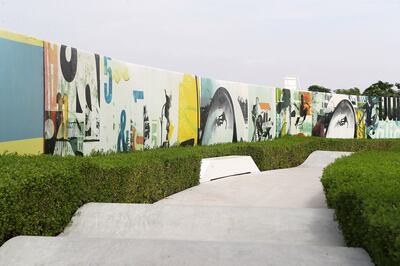
Carson was commissioned by Arada – the developers behind Aljada – to design the graphics at the skatepark, which is one of the largest facilities for skaters in the Middle East.
Carson’s work doesn’t say one thing. It’s both a feeling and a tone of voice that has transformed the world of print and graphic design.
Through his work on magazines such as Ray Gun, Transworld Skateboarding, Surfer and Beach Culture, all staples of the 1990s, the self-taught designer continuously broke the rules and reimagined how design could convey stories while simultaneously influencing culture.
A formidable figure of contemporary design, it was interesting to see him walk across the Aljada Skate Park, looking for inconsistencies, or “cringe moments” as he called them, in his work.
“I tried to represent everything I saw, from little girl skaters, people in the full local dress to skate kids that could have been anywhere in the world,” he says.
“All of that struck me, the kind of universal feel to it, even though we’re in a very distinct part of the world.”
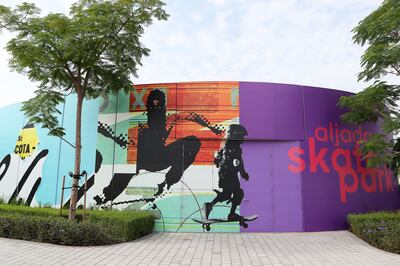
Carson was in the UAE for Sk8topia 2, a skateboarding event that took place from Friday to Sunday. The event included masterclasses, meet-and-greets and a panel discussion with Keegan Palmer, the park skateboarding gold medallist. It also included an outdoor exhibition at the skatepark showcasing key pieces of Carson’s work from across his career.
Experiencing the history of his work within the context of the skatepark reaffirms that he is a designer that has always created from his instincts above everything else.
“I'm trying to do things so that people want to know more, want to get in, or want to discover,” he says. “I want to make it worth their while to walk across the street and read the fine print on a poster.”
Carson’s work feels like an organic and universal conversation. This sense of play has been maintained throughout his different projects over the years even as the industry eventually left print behind for the online world.
While Carson would like to think there is a small chance that print is not entirely dead, he recognises that the next revolution will be online.
“I’d still want to be blown away by a magazine that I have to buy,” he says. “But I think the next thing is going to be more AI, something 3D.”
As creative sectors grapple with how AI will change the landscape, for good or bad, Carson sees it for both its potential and the impact it will have on designers.
“It's really exciting. I don't feel threatened by it in any way. Largely, because anything I've seen that’s trying to do what I might do, doesn't work,” he says.
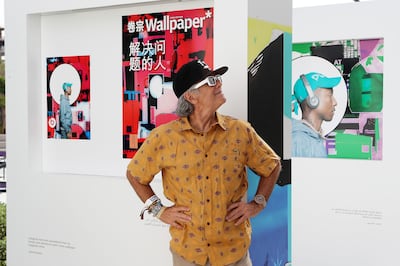
“But if you're the cog in the middle of some big agency, preparing decks for client presentation, good luck, your job is probably history.”
Carson emphasises though that nothing can take away from an individual’s perspective and experience that ultimately makes their work more interesting whether they are using AI or not.
“If you're using your uniqueness and your way of viewing the world and putting that into your work nobody can copy that,” he says.
“Like all good design it goes back to your individual approach. That's what's going to separate the really talented designers who trust their own intuition from the rest.”
